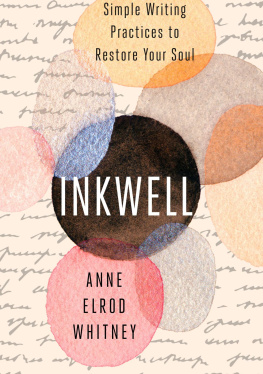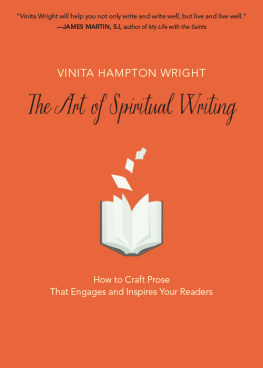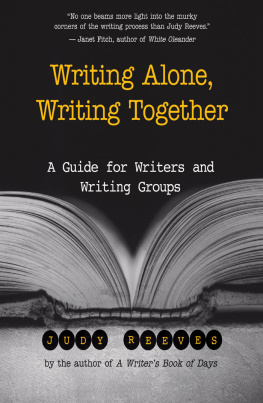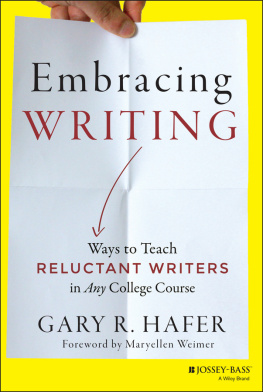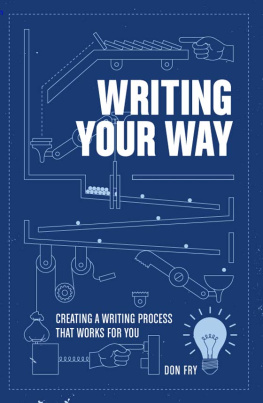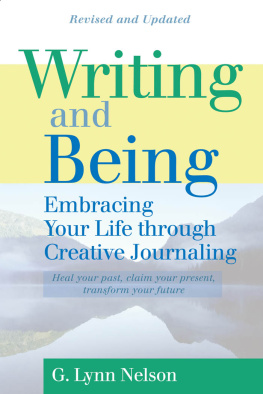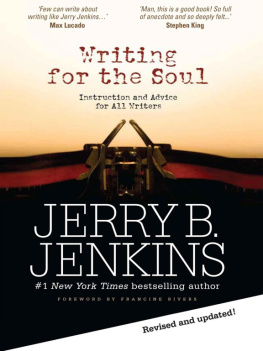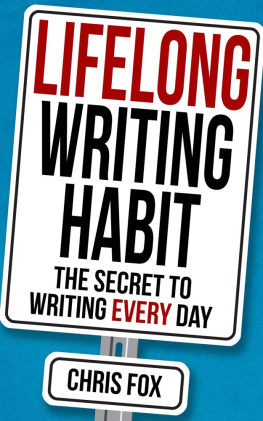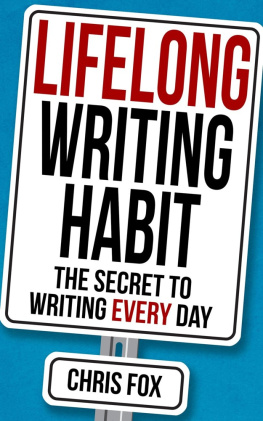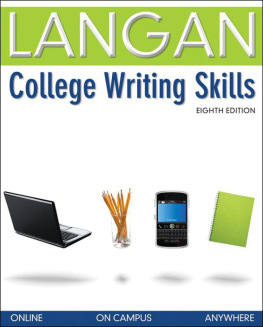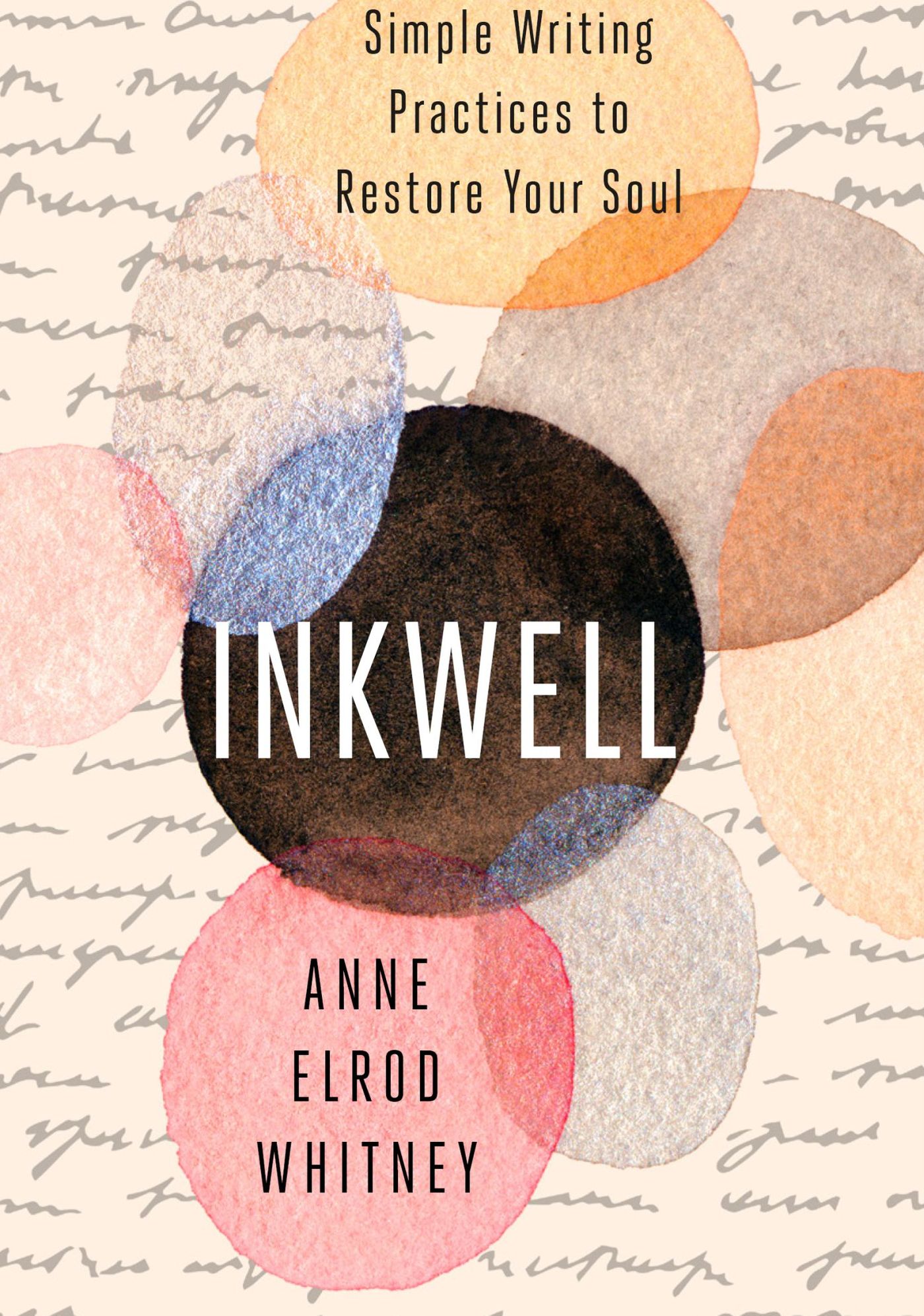
Inkwell
Inkwell
Simple Writing Practices to Restore Your Soul
Anne Elrod Whitney
Broadleaf Books
Minneapolis
INKWELL
Simple Writing Practices to Restore Your Soul
Copyright 2021 Anne Elrod Whitney. Printed by Broadleaf Books, an imprint of 1517 Media. All rights reserved. Except for brief quotations in critical articles or reviews, no part of this book may be reproduced in any manner without prior written permission from the publisher. Email or write to Permissions, Broadleaf Books, PO Box 1209, Minneapolis, MN 55440-1209.
Scripture quotations are from New Revised Standard Version Bible, copyright 1989 National Council of the Churches of Christ in the United States of America. Used by permission. All rights reserved worldwide.
Cover image: Shutterstock
Cover design: Olga Grlic
Print ISBN: 978-1-5064-6479-4
eBook ISBN: 978-1-5064-6480-0
While the author and 1517 Media have confirmed that all references to website addresses (URLs) were accurate at the time of writing, URLs may have expired or changed since the manuscript was prepared.
Contents
I wrote most of this book in 2020, which most people will remember as a year like no other. Without guidance from Emily King, I never would have started it, and without astounding grace from Emily and all of the excellent people at Broadleaf Books / 1517 Media, especially Rachel Reyes, I never would have finished it. And without finishing it, I never would have been able to do, again, with full attention, the writing activities in it, which have been so helpful to me through times of growth.
The truth about teaching, about writing, and really about most everything is that we rarely invent from nothing. Many of the writing activities in this book either emulate or adapt things I have learned from others, and I have done my best to properly attribute those ideas but have most certainly failed to acknowledge someone. Most of the best things I know about encouraging groups of writers I learned from Sheridan Blau, my academic father. Any teacher linked to the magnificent network that is the National Writing Project will know almost all of what I am sharing, and they will know also how the best teaching ideas are almost always things we learned from a fellow teacher.
Beyond that, every writing move here has also been developed and revised with specific audiences in mind: the people who have gathered with me in writing groups, retreats, and workshops. Among these are special friends who sent me examples of writing they had done at home, even consenting to have them included in the book (and while they ultimately were not, the hearts and lives of these friends are on every page: Ellen Campbell, Shelbie Witte, Cathy Fleischer, Jayne Steff, Phoebe Quaynor, Libby Snyder, Boni Richardson, Linda Giles, Cheryl Hogue Smith, Linda Andrews, Nicole Damico, Usep Syaripudin, and Yen Yun-Chen). Alicia Anderson of Penn State Lutheran Campus Ministry and Nathan and Angie Pile of Camp Sequanota were especially generous in inviting me to lead retreats, as well as State College Presbyterian Church and Grace Lutheran Church, especially Dotty Delafield. Two other heroes, Lois Lynn and Steve Lynn, read and responded to almost the entire manuscript, sharing their writing and insights as freely as they have shared their many gifts in the fifteen years I have known them. Steve may recognize a couple of shared moments here too.
Writing as a Tool for Self-Care
Take care!
Its an expression, just a way we sometimes say goodbye. Its right there on the small talk shelf, next to How are you? and Im fine: one of those nice-but-empty statements that I hear and say without thinking.
But a few years ago, I suddenly couldnt hear that little phrase take care without thinking in reply, I already am.
I was taking care of a family. Of cooking and cleaning and organizing and scheduling and tidying. I was taking care of dentist appointments and dropping off the forgotten clarinet and getting more toilet paper and reminding everyone to wash their hands and brush their teeth. Of shoveling the sidewalk, and knowing everyones clothing sizes, and mailing out Christmas cards, and finding black shoes for the concert thats tonight. Of nurse phone calls and visits from the plumber. I was taking care of hot tempers and adolescent changes and mean kids on the playground and boring homework.
And I was taking care of a career. Of email and reports and recommendations and schedules. Of research projects and doctoral students and committee meetings and evaluations. Of travel and presentations, articles and book contracts. I was taking care of colleagues and bringing cake to the faculty meeting and mentoring and leading meetings and unjamming the printer.
I dont know how you do it, people in my life would say. You make it look easy. But however it looked, it was not easy.
I was taking care of details, taking care of business.
I was not taking care of myself.
I slept poorly. I had higher anxiety, blood pressure, weight, stress, and irritability than normal. I had a lower mood, energy, productivity, and joy than normal. I felt all-around less normal than normal. I cried on the daily, slept rarely, and fumed mightily at all manner of wrongs. I prayed less, sang less, loved less, yelled more, hurt more, complained more. I was not OK. And being not-OK was becoming a way of life rather than something I went through every now and then.
You care for your car, for your houseplants, for your body, and for your money. What about your self? Your spiritual self? To function and thrive as the spiritual beings that we are, we need care just as much.
Why Self-Care?
On the personal scale, many of us are stressed and overwhelmed: We are living in a time and place in which busyness is seen as a sign of importance. Devices keep us in a tension between constant connection and disconnection: We are constantly reachable and aware of others online, while at the same time, that availability interrupts our connection to those with whom we are physically present. Even children are overstretched across a variety of resume-building activities. This is not good for us.
On the larger scale, we are hurting too: Issues of inequity seem intractable. Racism, sexism, homophobia, xenophobia, economic oppression, violence both physical and spiritual: these issues persist and even worsen, and for those who dedicate themselves to activism or change, the work is often discouraging. Those who give care know this to be true: teachers, faith leaders, health care workers, and others in helping roles struggle with burnout at alarming rates. But this struggle is not limited to those whose profession involves care: all sorts of people, from students to parents to everyday people of faith, find themselves needing a break from the news or from engaging the issues they find important, with a feeling that the problems are just too far gone by now.
We need practices that deliberately reorient us amid these challengespractices that reconnect our attention to God, to the world around us, to other people, and to ourselves. (Ill say more about God, as well as how to use this book regardless of your belief or unbelief, in chapter 2.)
Sometimes I hear people saying that an organization, leader, or experience didnt feed them. I know what that means, and I have had disappointing spiritual experiences too. But ultimately, we are not dependent on others for spiritual health, though others can be supports, guides, and companions, and organizations can provide conditions for spiritual health. We can rely on God to care for our spirits, and we can engage in Gods action by taking responsibility for self-care. Its like the old joke: A person says, God will save me from an impending disaster, and thus stands motionless, relying on God when meanwhile, God is sending a rowboat, a helicopter, a team of rescuers, and more, all of which the person ignores. The sun feeds the plants, but that doesnt mean we shouldnt still weed the garden. Spiritual self-care requires attention on our part. We can, and must, feed ourselves.
Next page
